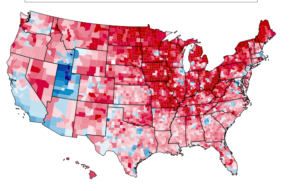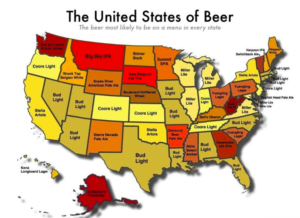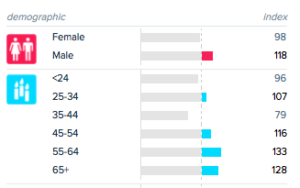We are emotional creatures living in a highly emotional world as recent events have shown. It’s a time when people often act, or react first without having any, or all, of the facts. And the media may (or may not) be reading more into things than are actually there.
Take for example, Budweiser’s “Born the Hard Way” Super Bowl ad. It tells the story of Adolphus Busch’s journey from Germany. The ad, released last Tuesday hit the air at the height of the controversy surrounding President Trump’s travel ban. The 60-second ad starts with a shot of Busch and a voice in the distance saying “You don’t look like you’re from around here.” Whether it’s intentional or not, the immigration themed ad struck a cord with many.
Although Anheuser-Busch InBev denies any political connections, others have used it as rallying cry. As an ad, it ‘s well done and hits many of the important elements of quality advertising. It’s an authentic (despite being somewhat fictionalized) story of the American success story told through the founder’s journey to St. Louis as a German immigrant.
The challenge is that it may not connect with its audience. More bluntly, it may have pissed off a lot of Bud drinkers. Here’s what the agency strategists and A-B InBev may have missed during the creative concept process.

Overlay the map below with 2016 Presidential election results map (by country) above and you will see that of the 13 states where Bud Light is the most popular beer, Trump won 9, and of the remaining four, Trump won the rural vote. In fact, the profile of a Bud drinker is almost identical to a Trump voter.

The risk for Budweiser, in its desire to reach and connect with Millennials (77% drink something other than Bud), is that they may have alienated and/or offended traditional Bud drinkers. The day before the Super Bowl saw a ground swell loyalists threatening to #boycottbudwiser (yes, spelled incorrectly). The hashtag trended the night of the Super Bowl and the following day after. Once corrected, the hashtag  became a lightening rod for comments both supportive and critical of the theme. Bud fans seemingly upset at what they see as Budweiser making a political statement.
became a lightening rod for comments both supportive and critical of the theme. Bud fans seemingly upset at what they see as Budweiser making a political statement.

It’s a classic big company conundrum. In order to ensure growth, Bud had to swift its messaging towards a younger audience at the risk of alienating its loyal customer base. The question for Budweiser now is did the ad do its job. It was voted as one of the “Winners” of the evening but did it convert non-Bud drinkers? And in this highly competitive marketplace, will the ad be effective in bringing new younger buyers to the brand at a rate to cover the loss of consumers who may be switching their allegiance because of their outrage over its political overtone?
The takeaway for agencies: We now have to consider the potential for ads to be “hijacked” by a political controversy. As a result of the polarization of America, agencies and companies may know have to consider how their audience voted (see the campaign map) when crafted campaigns. The other insight is that we may have found a new way to use emotions to trigger action, for better…or worse.
